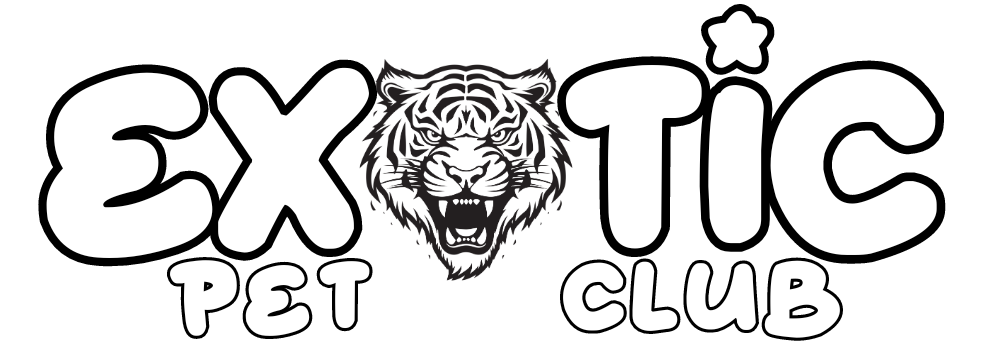Greetings, fellow canine enthusiasts! French Bulldogs, those charming little charmers, are known for their distinctive smushed faces and friendly, amiable personalities. But what about their dietary needs? What exactly do these lovable rascals need to stay healthy and happy? In this informative post, we’ll dive deep into the world of Frenchie nutrition and explore the best foods to keep these delightful companions thriving.
Key Takeaways:
- Quality dog food: French Bulldogs should be fed high-quality dog food that is appropriate for their age, size, and activity level.
- Protein-rich diet: Their diet should include a good amount of protein, which is important for their muscle development and overall health.
- Fruits and vegetables: In addition to their regular meals, they can also enjoy a small amount of fruits and veggies as treats or added to their food for extra nutrients.
- Avoid certain foods: French Bulldogs should not consume foods like chocolate, grapes, onions, and garlic, as they can be toxic to them.
- Regular feeding schedule: It’s important to establish a consistent feeding schedule to help maintain their energy levels and prevent overeating.
The Building Blocks of Nutrition
Clearly, the key to keeping your Frenchies healthy and happy is providing them with the right balance of nutrients. Just like humans, your French Bulldogs need a variety of essential macronutrients, vitamins, and minerals to thrive.
Macronutrients for Frenchie Health
Frenchie owners should ensure that their pets get a healthy balance of protein, fats, and carbohydrates. Proteins are essential for building and repairing tissues, while fats provide energy and support cell function. Carbohydrates, on the other hand, are a good source of energy for your lively Frenchies.
Your lovable French Bulldogs also require a balanced mix of vitamins and minerals to stay in top condition. With regular intake of essential vitamins and minerals, you can protect your Frenchies from various health issues and help them maintain a strong immune system.
Vitamins such as vitamin A, B, C, D, and E are crucial for your Frenchie’s overall health. These essential nutrients support healthy skin and coat, bone growth, and immune function, and help prevent deficiencies that could lead to serious health problems.
Daily Feeding Routines
If you are a proud owner of french bulldogs, you know how important it is to establish a daily feeding routine. Frenchies thrive on consistency and having regular meal times can help with their digestion and overall well-being.
Decoding the Puppy Phase
With french bulldog puppies, it is important to follow a feeding schedule to help them develop healthy eating habits. Feed them three to four times a day to accommodate their fast metabolism and growth. It’s crucial to provide a diet rich in protein, vitamins, and minerals to support their development.
Guidelines for Adult Frenchies
The adult french bulldog should be fed twice a day, once in the morning and once in the evening. Ensure that their diet consists of high-quality protein sources, healthy fats, and essential nutrients to maintain their energy levels and overall health.
Frenchies are prone to weight gain, so it’s important to measure their food portions and avoid free feeding. Regular exercise and a balanced diet are crucial for keeping them at a healthy weight.
Overcoming Dietary Challenges
Unlike other breeds, French Bulldogs can be prone to dietary challenges due to their sensitive stomachs and tendency towards allergies and weight gain. It’s important for Frenchie owners to be aware of these challenges and take proactive steps to ensure their pets’ dietary needs are met.
Managing Food Allergies and Sensitivities
Allergies and sensitivities are common in French Bulldogs, with common triggers including grains, dairy, and certain proteins. It’s important to work with a veterinarian to identify and eliminate these triggers from their diet. This might involve switching to a limited ingredient diet, avoiding common allergens, or opting for hypoallergenic foods.
Weight Management and Overfeeding
For French Bulldogs, weight management is crucial to their overall health and wellbeing. Overfeeding can lead to obesity, which in turn can lead to a host of health issues such as joint pain, breathing difficulties, and decreased life expectancy. It’s important to monitor portion sizes, avoid giving too many treats, and ensure they get regular exercise to maintain a healthy weight.
Overcoming these dietary challenges may require some trial and error, as every Frenchie is unique and may react differently to certain foods. By being proactive and paying attention to their nutritional needs, you can help your French Bulldogs live long, healthy lives.
Treats and Extras
To keep your French Bulldogs happy and satisfied, it’s important to include treats and extras in their diet. While their main meals should be nutritious and balanced, treats can be a fun addition to their diet. However, it’s important to choose treats and extras that are safe and healthy for your furry friends.
Fun and Healthy Snacks
For fun and healthy snacks, consider giving your French Bulldogs pieces of fresh fruits like apples or berries, or vegetables like carrots and green beans. These snacks are not only delicious for your pups, but they also provide additional nutrients and fiber to their diet. You can also incorporate frozen yogurt or small pieces of cheese as occasional treats, which can be great for training or as rewards for good behavior.
Foods to Avoid
One important consideration when it comes to treats and extras for your French Bulldogs is to be aware of foods that are toxic to them. Some of the foods to avoid include chocolate, grapes, onions, garlic, and avocados, as they can be harmful and even potentially dangerous to your furry companions. It’s also best to avoid giving them foods that are high in fat, sugar, or salt, as these can lead to health issues such as obesity and digestive problems.
Healthy treats and extras can be a great way to bond with your French Bulldogs and keep them happy, but it’s essential to be mindful of their overall diet and nutritional needs. By choosing safe and nutritious options for their treats and extras, you can ensure that your pups stay healthy and content.
Conclusion
Presently, French bulldogs can eat a variety of foods such as high-quality kibble, fresh fruits and vegetables, and lean proteins. It is important to ensure that their diet is balanced and meets their specific nutritional needs to keep them healthy and happy. Additionally, it’s crucial to avoid feeding them foods that are toxic or harmful to their health, such as chocolate, grapes, and onions. By carefully selecting the right foods for your French bulldog and keeping an eye on their portion sizes, you can ensure that they have a well-rounded and nutritious diet.
FAQ
Q: What do French bulldogs eat?
A: French bulldogs should be fed high-quality dog food that is appropriate for their age, size, and activity level. You can also include fresh fruits and vegetables, and lean meats as occasional treats.
Q: How often should I feed my French bulldog?
A: Adult French bulldogs should be fed twice a day, while puppies may require three meals a day. It’s important to establish a feeding schedule and not leave food out all day to prevent overeating.
Q: Can French bulldogs eat human food?
A: While some human foods are safe for French bulldogs, it’s best to limit their consumption. Foods like chocolate, grapes, and onions should be avoided as they can be toxic to dogs. Always check with your vet before feeding your French bulldog any human food.
Q: Should I give my French bulldog supplements?
A: It’s best to consult with your vet before giving any supplements to your French bulldog. In general, if they are eating a balanced and complete diet, they should not need any additional supplements.
Q: Are there any foods that French bulldogs should avoid?
A: Yes, French bulldogs should avoid foods that are toxic to dogs, such as chocolate, grapes, onions, and foods high in fat. They should also not be given bones, as they can splinter and cause injury. Additionally, some dogs may have allergies to certain ingredients, so it’s important to monitor their reactions to different foods. Always consult with your vet if you have any concerns about your French bulldog’s diet.
















